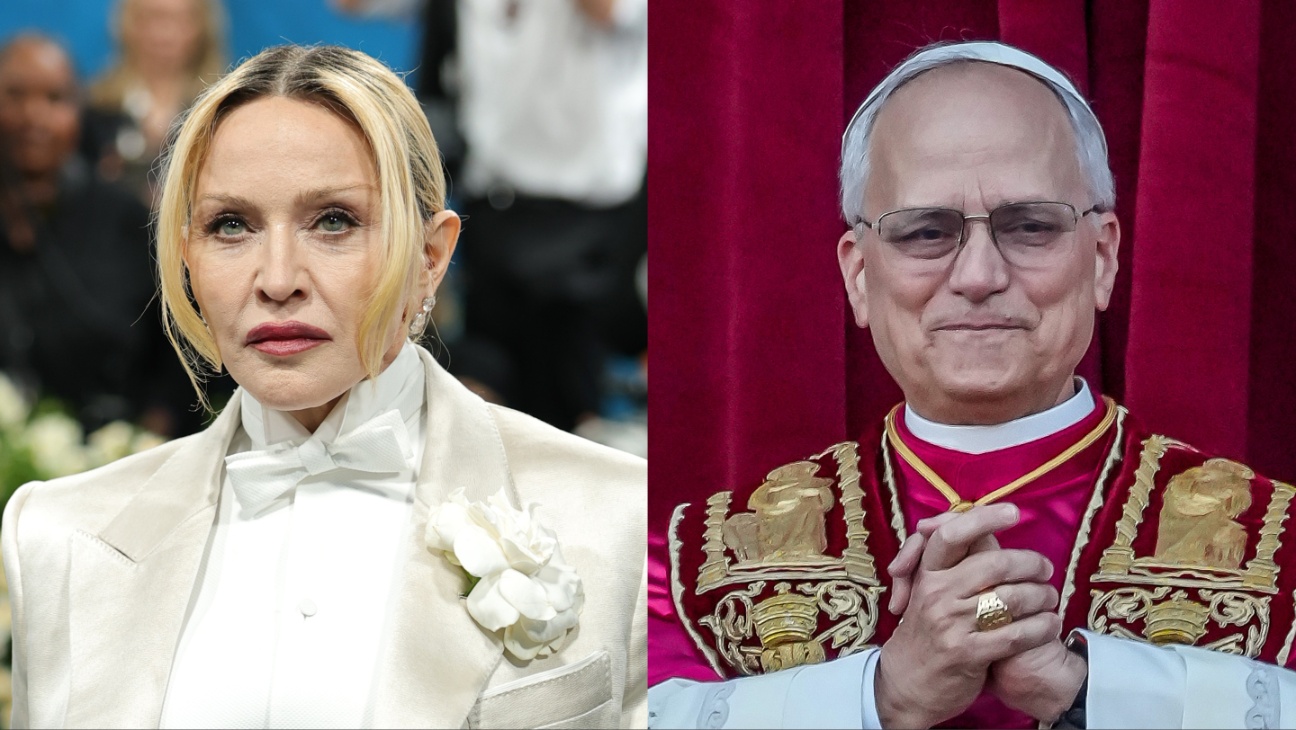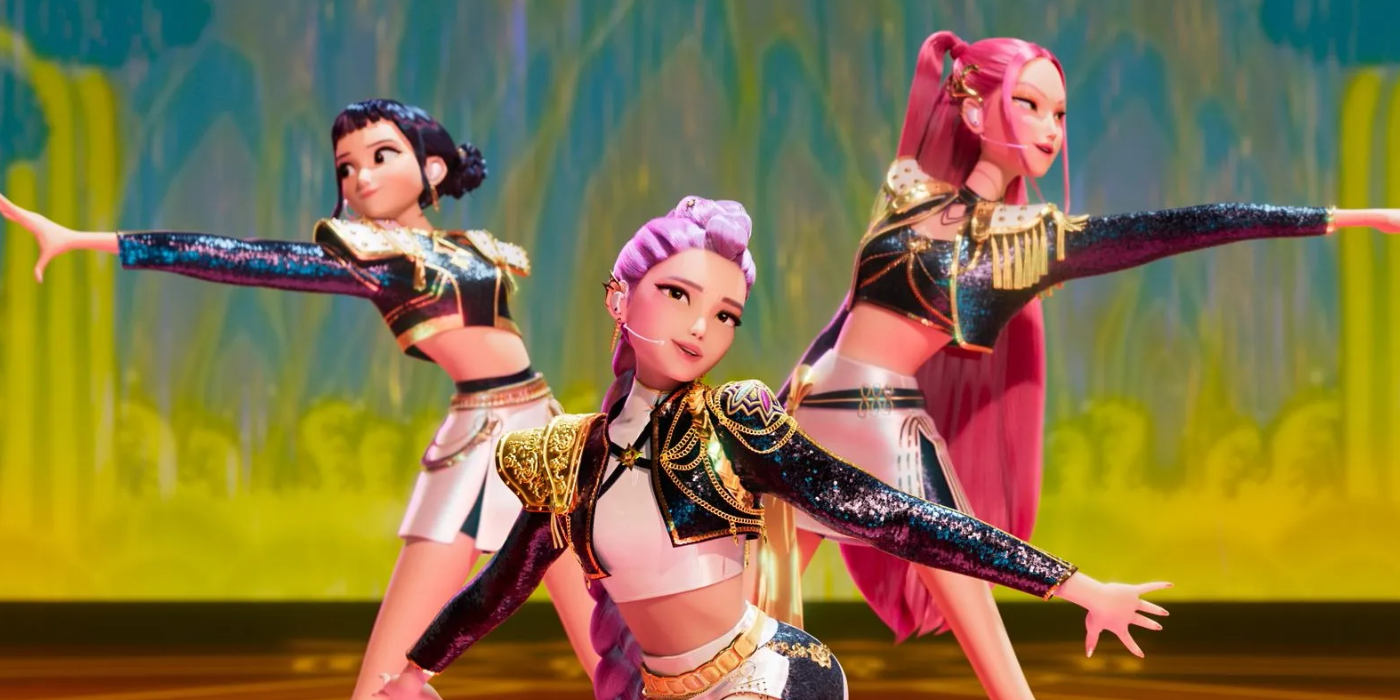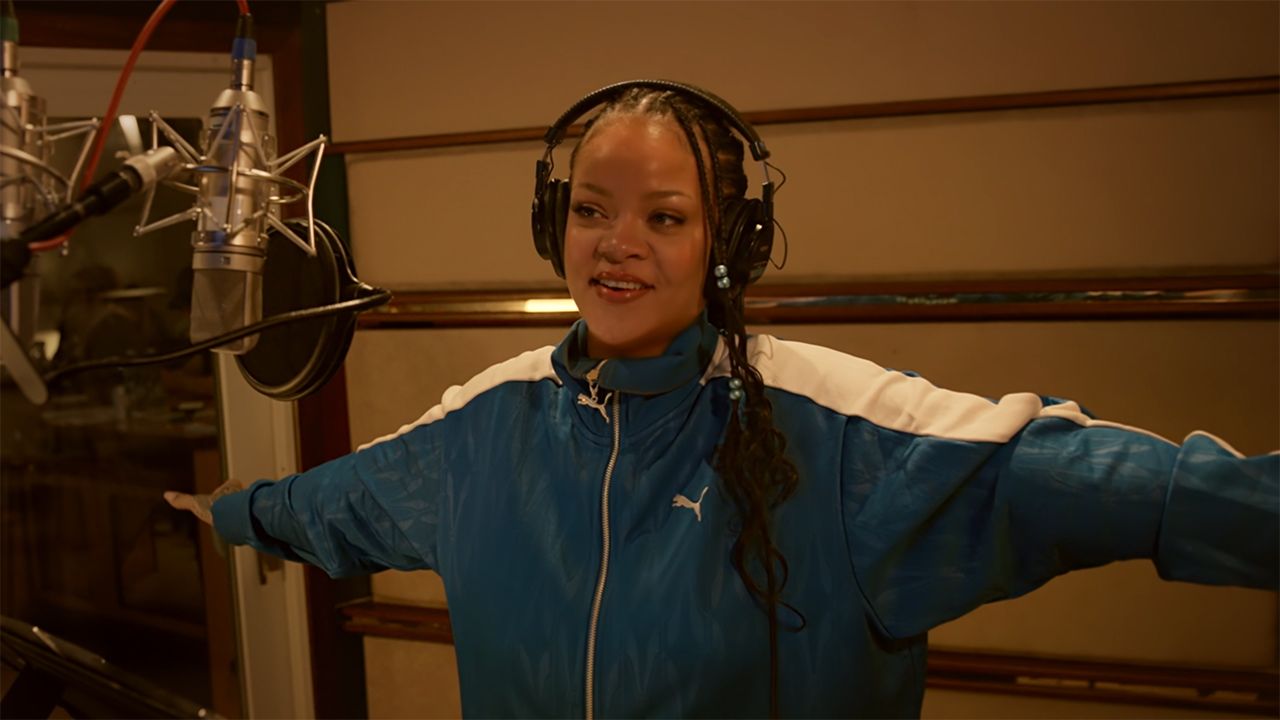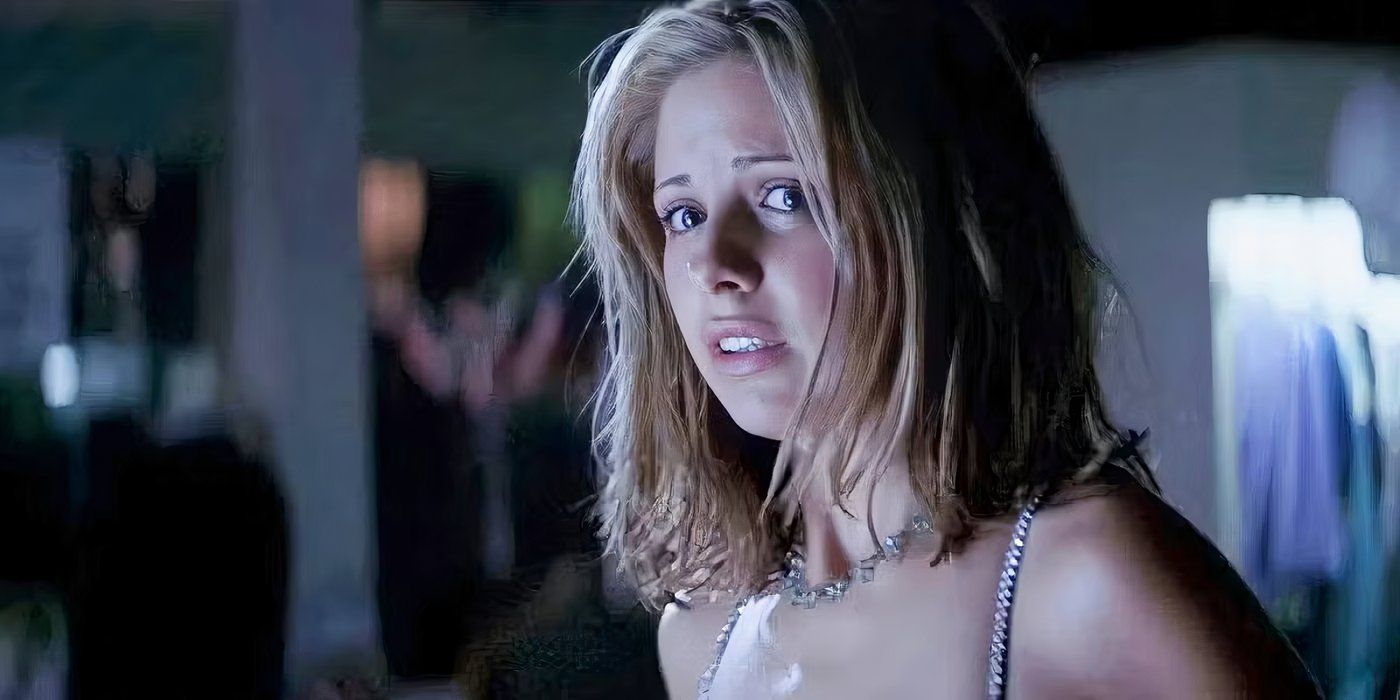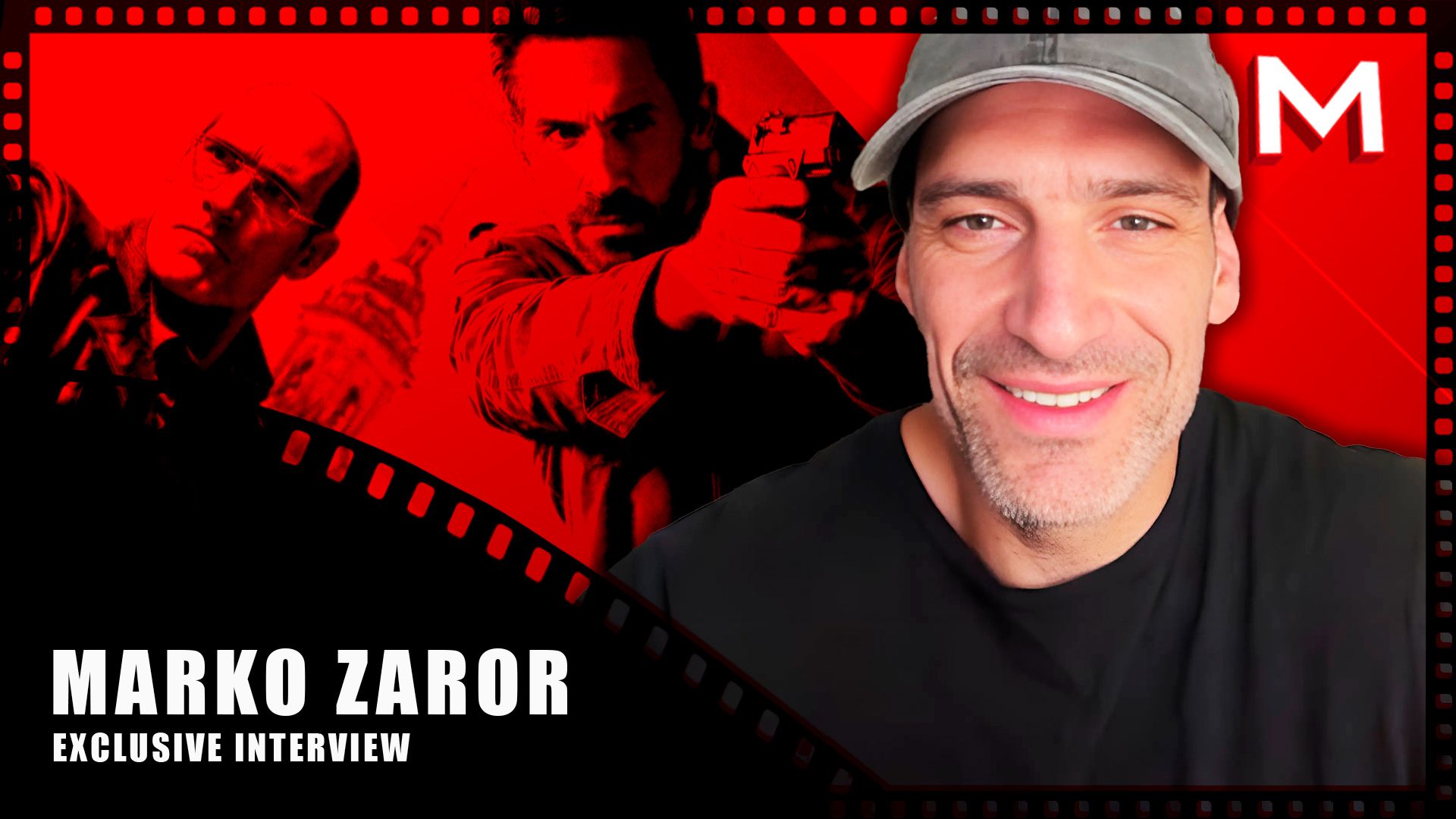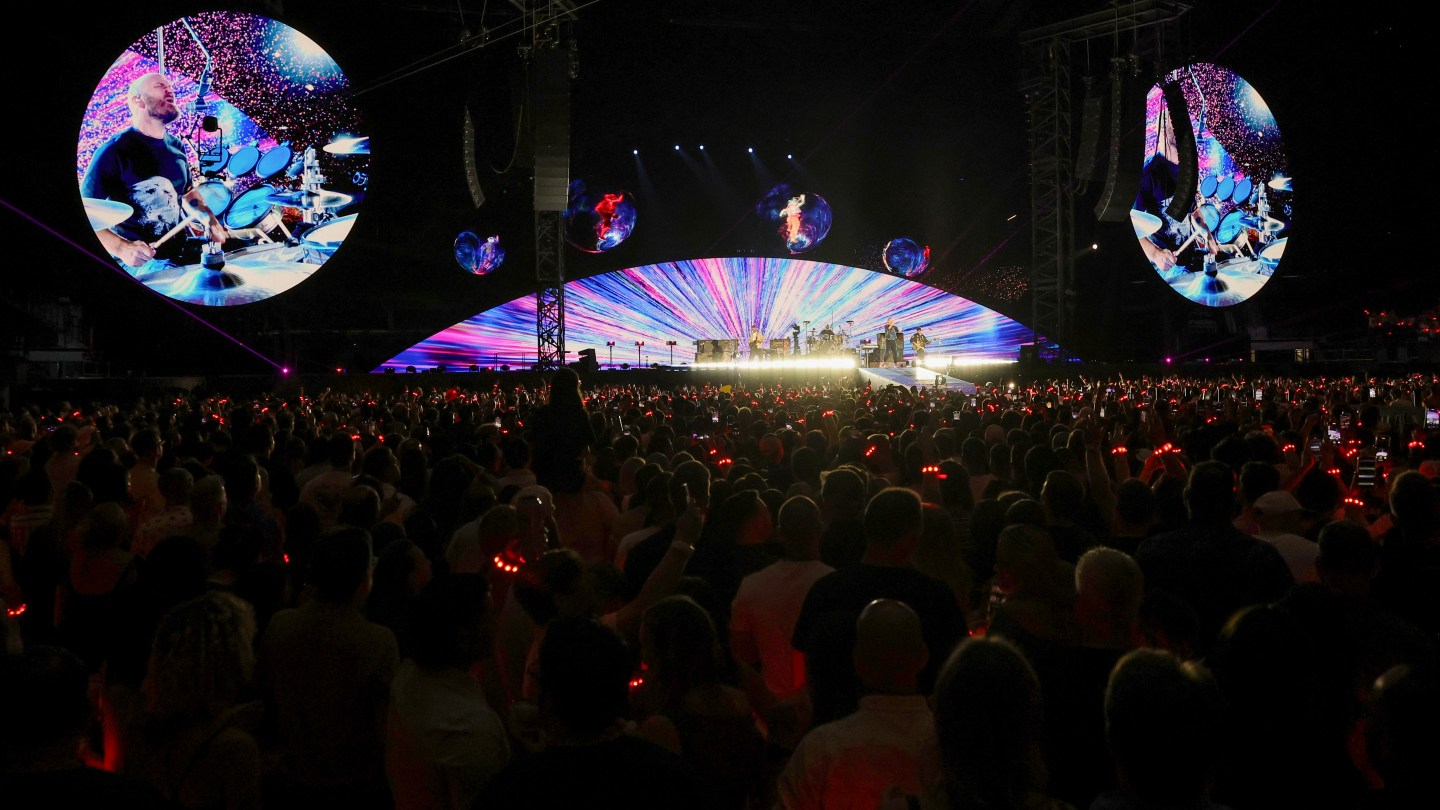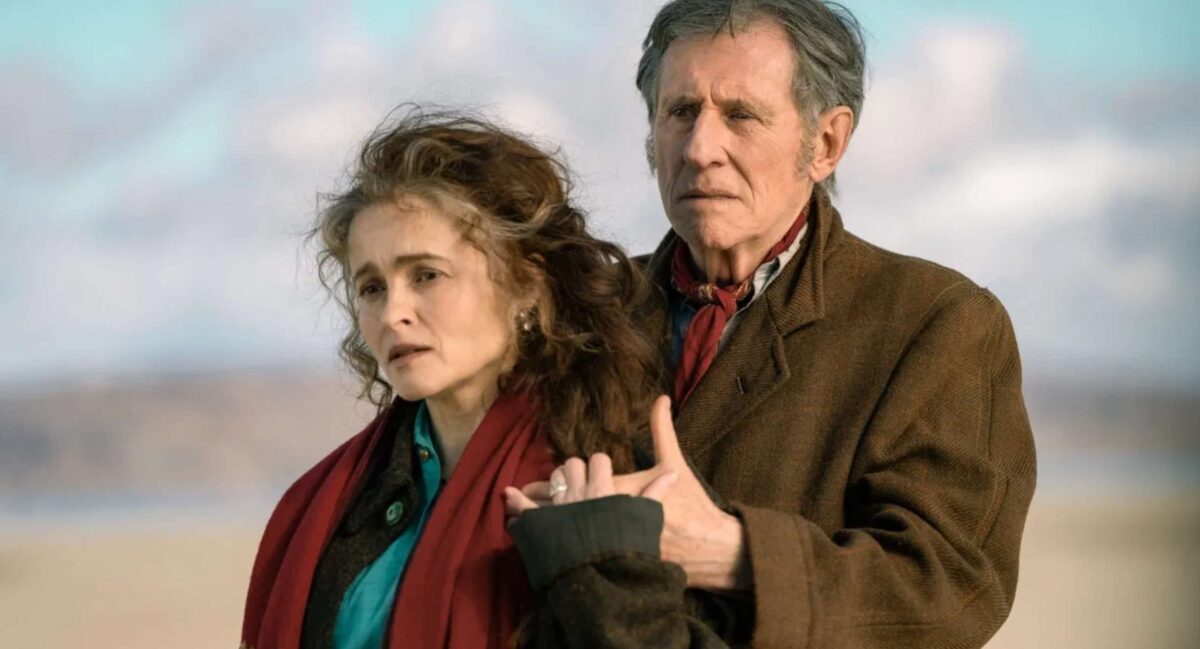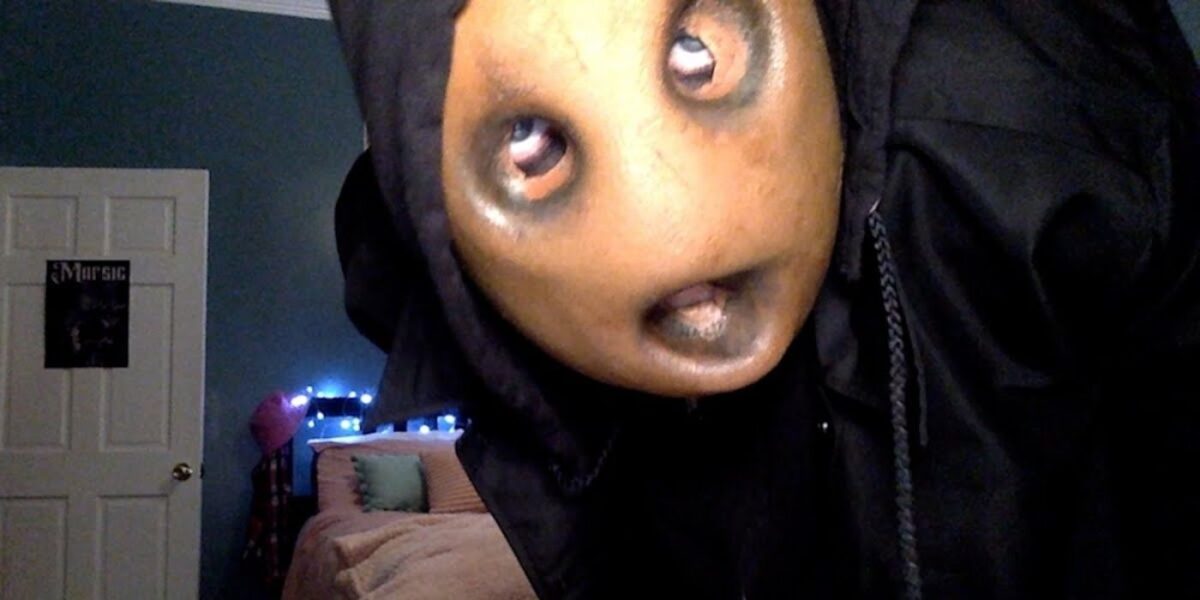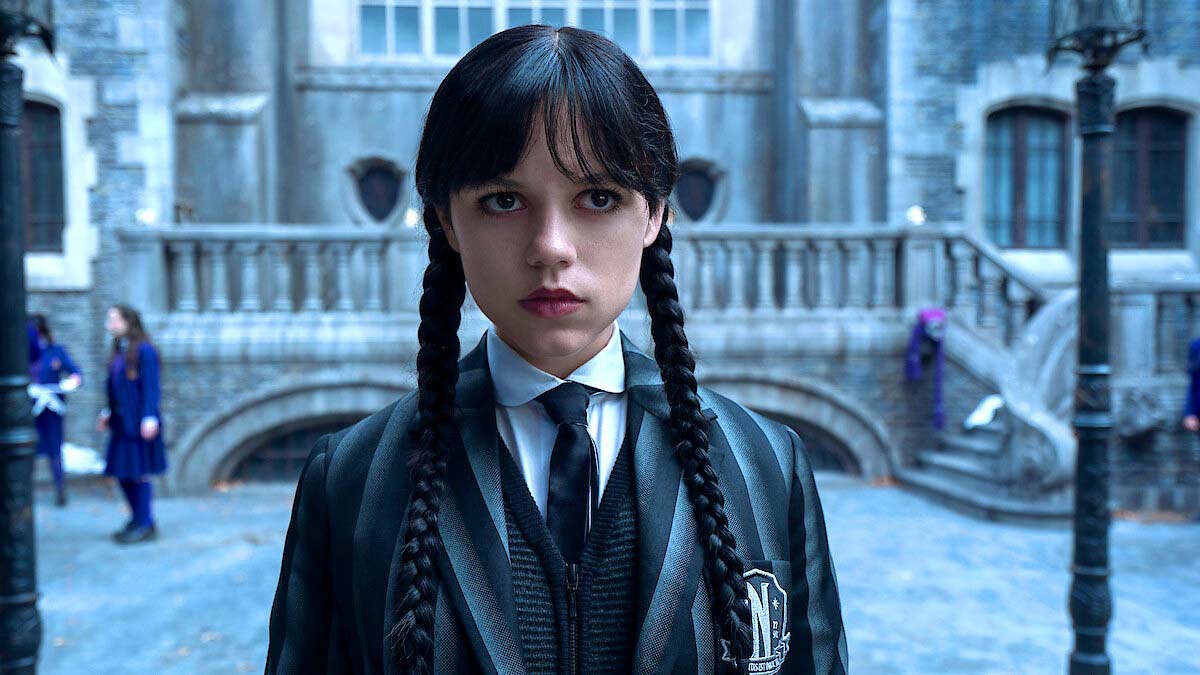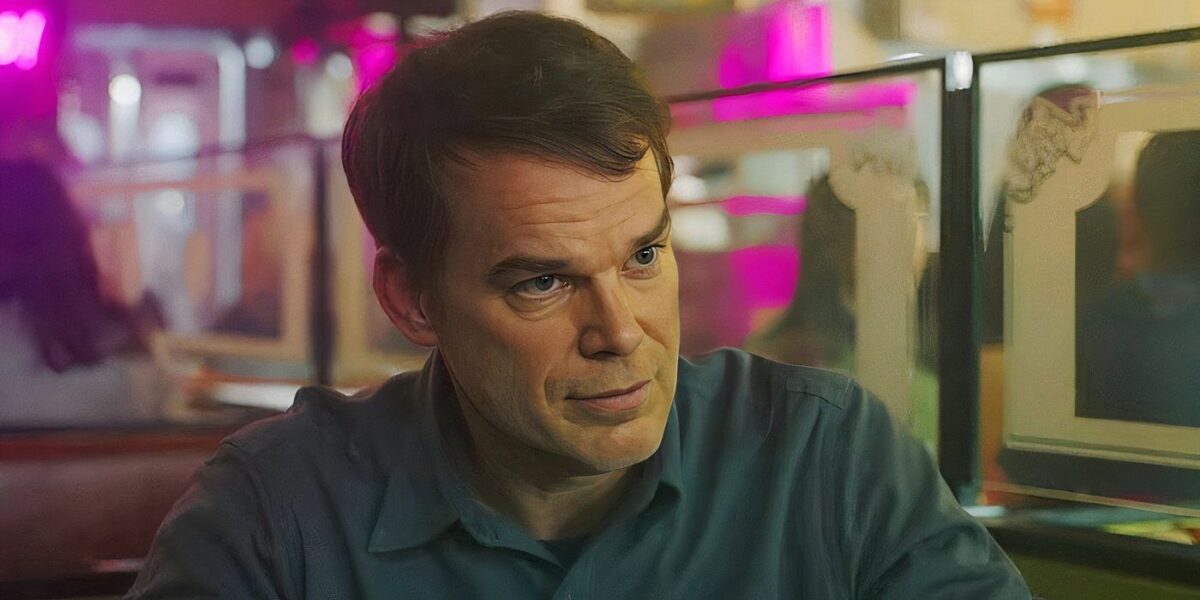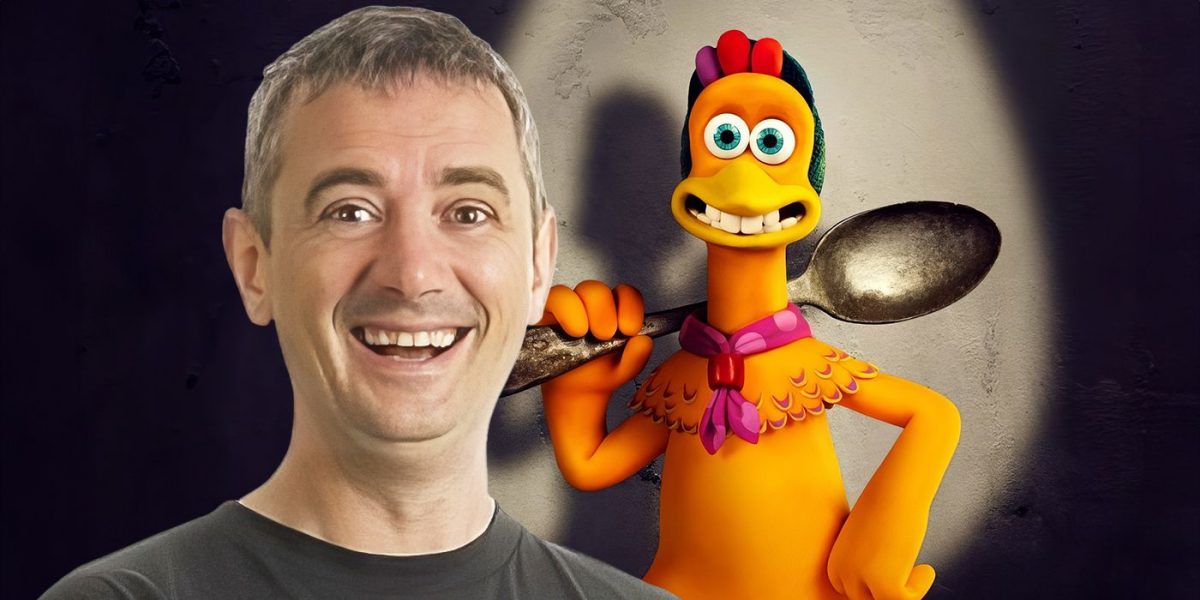
‘Chicken Run 2’ Director Talks Bella Ramsey, Netflix, and Queer Chickens
Nov 17, 2023
The Big Picture
Director Sam Fell talks about the challenges of making a sequel to the iconic film Chicken Run while honoring the original and appealing to a new audience. The sequel, Chicken Run: Dawn of the Nugget, follows Ginger and Rocky’s daughter, Molly, as she embarks on an adventure that takes her back to the threat of Mrs. Tweedy’s farm. The film aims to expand on the original story and tackle bigger themes, with a larger scale and a greater threat to all of chicken-kind. Ginger takes on the mission to save her species from Mrs. Tweedy’s evil plan.
In December of 2022, it’s a year out from Chicken Run: Dawn of the Nugget’s release on Netflix, and director Sam Fell is on-site at Aardman Studios in Bristol, UK. As part of our set visit, I got to interview Sam along with another member of the press about the highly-anticipated sequel to the highest-grossing stop-motion animation film of all time, 2000’s Chicken Run. Fell has been working in animation since the early ‘90s and even worked on the original Chicken Run. Since then, he has co-directed the widely successful Aardman-Dreamworks project, 2006’s Flushed Away, which sees a posh London house rat get flushed down into the city’s sewer system. Then, teaming up with co-director Rob Stevenhagen, he turned his hand to Universal with The Tale of Desperado for more vermin fun.
But perhaps Fell’s most adored film is 2012’s ParaNorman which he co-directed with Chris Butler. A Laika production, ParaNorman tells the story of a young boy in the American suburbs who has to convince his friends and family that their small town is in grave danger as a witch’s curse is about to be unleashed. As Fell says himself, it took the bones of stories like The Goonies, but it is a spooky offering entirely its own. This translated to rave reviews and a strong box office haul. And let’s not forget it was an early 2010s PG animated film with an openly queer character! Disney could never.
Now, Sam returns to his roots at Aardman to undertake the task of crafting a sequel to one of the most beloved (and financially successful) stop-motion films of all time… Two decades later. This is also his first solo feature. No pressure! Fell’s sequel sees Ginger and Rocky (now voiced by Thandiwe Newton and Zachary Levi) raising their daughter, Molly (Bella Ramsey), on the ideal chicken island with all the friends from the original film. But when Molly gets itchy feet and escapes to discover the world, she ends up back where her parents fought so hard to get out of the terrifying grasp of Mrs. Tweedy. In our interview, which took place last December during a set visit at Aardman, Sam talks about recasting actors, potentially having queer love stories between the chickens and the benefits of working with Netflix.
Image Via Netflix Chicken Run: Dawn of the Nugget
Having pulled off an escape from Tweedy’s farm, Ginger has found a peaceful island sanctuary for the whole flock. But back on the mainland the whole of chicken-kind faces a new threat, and Ginger and her team decide to break in. Release Date December 15, 2023 Director Sam Fell Cast Bella Ramsey, Zachary Levi, Nick Mohammed, Thandiwe Newton Rating PG Main Genre Animation
Why Did It Take 20 Years to Make a ‘Chicken Run’ Sequel?
Image Via Netflix
QUESTION: Did you work on the first film in any capacity?
SAM FELL: I did one shot.
Which shot?
FELL: It’s a shot of Rocky peddling around on a tricycle over the hill. It was a huge set, but somebody got sick, and it was near the end of the shoot, so we were rushing.
Do you think it’s been beneficial not to be too close to the first film? As opposed to the animators who were so immersed in the first film? It’s kind of like fresh eyes.
FELL: Yeah, I think so. I think so. It’s hard because it’s such a monumental piece of work, Chicken Run 1. I’m so in awe of it. It took a while to get over that, anyway. On the one hand, I want to really honor the first film and the fans from the first film, but it was done quite a long time ago, and I want to make it for now, for a new audience as well. I think it was good to have that distance. But I started it off in 1990, so I’ve been around a long time. I’ve been elsewhere. So I’ve known Pete [Lord] and Nick [Park] pretty well, and I know the Aardman vibe, there’s a certain tone, so I kind of feel confident to take liberties with it. But yeah, I’ve always wanted to make sure I don’t take a classic Rolls Royce and put fins on it.
So you’re making it for a fresh audience but honoring the original.
FELL: Yeah, evolving it and bringing it into a sort of new genre and time.
The best thing about Aardman’s films is that they’re timeless. So it is kind of easy to bring Chicken Run into the modern age because it’s timeless and can be enjoyed by all audiences of all ages.
FELL: Yeah, definitely! The characters are very strong, they’re very iconic, and the themes in the first film are very universal – freedom and dreams. So that core idea of what’s it like to be a chicken in a world where humans find you delicious, it’s just such a big idea, you know?
It seems like this is kind of mirroring the first film, because the first one was a breakout, and now it’s a break-in.
FELL: That was the first pitch. That was there before I came and it’s what got me on board. It’s that simple. Just straight away, that outline conjures up a genre or a type of film, like a heist, and also all the invention and comedy of Aarman; all the ingenuity, the gadgets… It’s like Chicken: Impossible. (One of the original titles, apparently)
We’ve heard there was an original story that was completely scrapped, and then there was a new version that came on. Can you tell us anything about the original story?
FELL: As I say, it’s always been the same plot, which is this kind of breaking-in. So, the plotline hasn’t actually changed. The plot was always, “Let’s take our characters and make them break in this time.” It would be like Mission: Impossible, and it would be the jeopardy and the fun of that gang getting into somewhere big. The idea was always that it would be this big high-security venue, and I think even at the beginning it was going to be some form of nuggets. The really difficult thing was finding the character story because we were also super interested in Ginger and Rocky’s next chapter and them having a kid and telling a family story. So it’s like, how do you put a heartwarming family story, in the middle of a Mission: Impossible/James Bond movie? I couldn’t find many examples of that being done, you know? So it’s trying to make that intimate emotional tale fit inside this kind of big monster plot.
So, originally, we were trying to pursue Rocky a little more, and then the turning point came in realizing the next chapter of Ginger’s story in particular would be more interesting because she’s such an idealist. Her thing at the beginning of the first film was like, “I’m gonna get everybody out of here,” and she encapsulates bigger ideas, I think. Rocky turned out to be a bit more of a self-absorbed kind of character; a sort of selfish, vain kind of character. That story was interesting, but it didn’t offer as much. But the thought of “Well, what happens when Ginger, this great hero, this freedom fighter, what happens when she gets a dream and a happy ending?” What is she gonna do? Is she gonna settle down and turn her back on things? What would bring her back out?
We heard originally it was going to be Ginger and Rocky had a son.
FELL: Yeah, that’s right. It was a father-son story.
So why did that change to mother-daughter?
FELL: Because of Ginger, really. It was just so interesting to look at Ginger in the first film. Ginger drove the first film, actually; it was her dream, her want and everything, and she drove the story. It wasn’t necessarily that it needed to be a daughter, but it was a thing of, “Oh, what is Ginger going to do next?” She got a happy ending. Well, what happens if she had a daughter and the daughter was just like her, you know, freedom-loving… What happens when that little island that you just created turns out to be a little bit limiting for Molly?
There’s that line in the first film where Rocky says the grass is always greener on the other side, so I guess that’s true for Molly, as well.
FELL: That’s true for Molly, as well! At the beginning of the film, she climbs into a treehouse, and she looks out, and she’s just mesmerized by imagining what could be out there. Ginger’s a little bit slightly traumatized. You know, she kind of has a fear now. I looked at Ripley in Aliens, you know, like, she doesn’t want to go back to the planet. So, she has that fear, [which is] quite justifiable, to be honest. Whereas Molly’s completely innocent, and she’s like, “That looks great!” So, it just grew that way over a period of time.
It seems like the scale of it is bigger because before, Ginger just wanted to get chickens on that farm out, and she was like, “I want to get out, but only if everyone else does too.” And now it seems like she’s thinking about all the chickens in the world.
FELL: Well, the threat has got bigger, as well. That’s what we wanted to do: make the threat bigger. So the threat of Tweedy’s farm with the pie machine making those pies, it’s bad, but on a modern scale, it’s kind of like a nice organic farm, really. You know, making some pies — lovely — versus now they have to face a much bigger jeopardy, and this is a jeopardy for all of chicken-kind, actually. It’s the grandeur, the scale of a Bond villain’s vision… Mrs Tweedy wants to get rid of, like, all of them now, or as many as possible. So, the notion of creating a nugget that is irresistible or will be irresistible for generations to come. So, Ginger’s got to save chicken-kind.
Yeah, it seems very current. Was this idea born before this recent rise of veganism and people really turning their eyes towards the meat industry? Is there much of that incorporated into it?
FELL: Might be there because this story has been forged in the last six years, probably. That stuff is always in the ether, you know. It’s for audiences to take what they want, really. It’s not specifically that. Mostly we have to make a really entertaining film, and jeopardy is part of that, you know, high stakes, or the stakes of the nuggets. It’s the scope and scale of that. So I guess it’s just naturally there, but it’s not particularly.
So why no sequel immediately in 2002? Why wait all these years?
FELL: It is a big operation. It’s not a huge studio, Aardman, when you compare it to the big studios. You know, they have two or three pipelines running, they can run three feature films [at once]. They were clearly going to make a Wallace and Gromit movie, which they did, which was amazing and brilliant. I think from there, I’ve always been kicking the ideas around. I’ve been to meetings over the decades, the last 20 years. I’ve always wanted to, but it’s taken a long time to find a story, the story that’s worthy of the next chapter.
Sam Fell Wants to Update ‘Chicken Run’ While Continuing the Story
Do you feel like the more the years have gone on and there’s a bigger gap between the two films, there’s more pressure on this film to be better?
FELL: Personally, no, because I just think it’s that long now that it’s okay. It’s a new time. It’s not a reimagining or anything like that, but there’s enough distance between the two to be able to kind of take a fresh look at it.
Especially recasting some of the roles might have been kind of challenging and disrupting consistency. You have some of the old ones, like Imelda Staunton, but then the new, especially Ginger and Rocky, for a new audience, probably helps that in giving it its own identity.
FELL: Yeah, if it was like five years after the first film, or even 10, you may not have even thought of changing anybody. It would have been a natural progression. But the world’s changed so much since 2000. You see how many things have changed…It just felt like it’s okay to be able to make it a bit different. There’s a whole new generation of actors, so the time is, in a way, good for me because I’m not Pete [Lord] or Nick [Park].
We were hearing earlier about how Chicken Run is still the highest-grossing stop-motion animated film, and it was interesting that happened at a time when 2D hand-drawn animation was being phased out because I think there were a few box office flops. Do you think that Chicken Run is responsible for how much investment there’s been in stop-motion animation? It’s such a time-consuming process.
I think, yes, in a way. It flew the flag for stop-motion in a really big way. It’s a marker in the history of stop-motion. It was made so well and it did really well. It had a great story and a great heart. In terms of its craft, it still stands up. If you watch it now, it completely draws you in, and you don’t feel that it’s subpar in any way. It has an amazing quality to it. It’s iconic and I think it showed that you can reach a wide audience with a stop-motion film. It doesn’t have to be niche or for a particular audience.
The first one was very much a kind of The Great Escape, [which] was the main reference. Was there a particular kind of ‘60s Bond feel?
FELL: Yeah, it’s Mission: Impossible and Bond. So it’s not one particular film, but it’s certainly that idea of breaking in. There’s a slight sci-fi element to Bond and Mission: Impossible, which I like, but with the spy thriller and the heist. So it’s definitely playing in that sandpit. My favorite Aardman films do that, like Farmageddon or Wererabbit, where they play in the genre and they’re really strong. They’re made with the seriousness of the film, but it’s got funny characters in it, and it’s sort of tongue-in-cheek and you kind of undercut it. For me, it’s like a Hollywood movie in a way.
With a live-action you might have a main unit and a second unit, but here you’ve got lots of different units shooting at the same time. How often are you down there on the sets, and how much are you just overseeing?
FELL: I’m there all day every day. I’ve come from animation and I know specifically what I want, and the best way to get it is to come in every day and say what you want and then go to the sets and help get the framing. Because it’s such a dimensional, tactile medium, I find it hard to do it just on the screens. So yeah, I’m super involved.
How is this production compared to, say, ParaNorman? Do you think working with ParaNorman, which is more of an American story, do you think that there is a difference between Britain’s approach and America’s approach to animation? How do they differ for you?
There’s definitely a difference just because ParaNorman’s set in an American town, and we were playing with The Goonies and zombie movies, and we had all that reference. It was kind of great to do because they’re all a lot of my favorite films, as well. But Chris [Butler] is a Brit, as well, who wrote it, and he was a co-director, as well. So, there were quite a few Brits there as well. Yeah, Aardman’s unique, you have to know the Aardman vibe. I don’t think anyone could just come in and make an Aardman film. Maybe it’s possible. I’m glad that I’ve known Aardman a long time. But yeah, nuts and bolts… it’s pretty similar, really. The humor with Aardman is quite unique. That’s why I love it. There’s a certain British voice. In particular, you know, there’s a dynasty of humor that runs back through ‘60s/‘70s, you know. I really enjoyed making films with these guys.
Will ‘Chicken Run: Dawn of the Nugget’ Have Some Sapphic Romance?
Image via DreamWorks
I rewatched ParaNorman recently, and I just was so touched by the inclusion of a queer character in 2012!
FELL: Yeah!
Is this something you think of when you approach an animated film? Do you want to reflect a wide audience?
FELL: Yeah, absolutely. At Aardman, I can’t think of anything that wouldn’t be put in.
I’m all for a Babs and Bunty romance. Just saying.
FELL: We did think about that because there are not many roosters. There’s a future chapter where there are more roosters involved. There would be a whole bunch of funny rooster characters. So that made you think, “Oh, would she need a rooster…Or maybe she wouldn’t…”
So, is Molly going to be the only baby in the new one?
FELL: Yeah. So that’s unique for her, as well. Another reason why she might want to go see more. We didn’t chase that down too much, that storyline, but she does meet a friend when she goes there. She meets a young friend called Frizzle who’s a really fun new character.
Absolutely. And Bella Ramsey is going to be a household name come January [2023].
FELL: To me, they already are. They’re great.
So what’s the process of looking for these new voices, particularly when you were looking for replacements for Rocky and Ginger?
FELL: Different things. Sound is one thing, of course, and the musicality. Having been an animator, I know that just the inflections and the music in a voice are gold dust for an animator because you can follow that. So both Zachary and Thandiwe have wonderful music in their voices if you just listen to them. I already was listening to Thandiwe on talking books. And Zachary, I saw him in Shazam!, he’s got a brilliant comic sound. So sound is, obviously, one thing, that warmth and the right range… Rocky’s a more comic character this time. He was a romantic lead in the first film, but like this is a more comical first-time father. So I liked that sort of warm, comic vulnerability in Zach.
So has he mellowed at all as a father?
FELL: Yeah! He’s a little less [of a] tough guy. And with Thandiwe, I’ve been such a big fan of Westworld.
Well, this kind has Westworld vibes!
FELL: Yeah! It’s set in the ‘60s. There seems to have been an obsession with brainwashing in the ‘60s, as well, so that came through.
Why Were Some of the ‘Chicken Run’ Actors Recast?
Image Via Netflix
I feel like having Mr. Tweedy back, you couldn’t do it without Miranda Richardson, I would imagine. You probably didn’t entertain [the idea].
FELL: I did, actually! I honestly just started with a blank sheet of paper.
There was no character where you were like, ‘It has to be the original voice?’
FELL: No.
Were you entertaining recasting everyone entirely? To depart from the first film, did you consider just having no one the same character?
FELL: Yeah, that was my starting point and then I just worked through it. It’s a process casting, you know. It’s not totally scientific and logical, to be honest. You just sort of start at the beginning, and you start working through, and you start listening to different voices, different things are playing against each other.
Did you have them audition? For instance, Imelda Staunton and Miranda Richardson, did you have them audition to see if they could still do it?
FELL: No. You could just hear. You can check out their latest work, listen to them in an interview.
Watching The Crown: “That’s my Bunty!”
FELL: Yeah, most of them are still working. So yeah, I just thought it was long enough ago to just start again, think again.
How did you find Josie Sedgwick-Davies for Frizzle?
FELL: Just through casting. We put out a call for Frizzle, and I wanted to find somebody new. I just wanted something fresh and a little raw. We did that with ParaNorman for Neil, the character. He was so fresh out of the box. It was so brilliant to work with someone like that who wasn’t too trained. But Josie is trained. She writes, as well, and she’d written and acted in this little short piece that was just so funny. It was so good. She was like Frizzle, and it was just like this slightly nutty working-class girl. Just so endearing and funny. She’s great.
Sam Fell Applauds Netflix For Their Flexibility
Image Via Netflix
So, is this your first feature going straight to a streaming service?
FELL: Yes, it is.
Has that impacted your way of approaching it at all?
FELL: It hasn’t. I think a lot of people who make films for streaming still think cinematically. I think Netflix encourages it, really. They don’t push you to make it for a smaller screen. They are great. I’ve heard it before, “They’re so great to work with,” but they actually are. They are incredibly encouraging. I think they’ve opened up the parameters for creativity so much because you’re not stuck with this opening weekend box office results, and you can find an audience a little more gradually, and a much wider audience, a worldwide audience across the globe, you know? I think, yes, you can make things more unusual and know that it will find its audience. It doesn’t have to be just in that opening weekend.
So it alleviates some of that pressure.
FELL: Yeah. Creatively, your decisions can be a little bit more unique and a little bit more idiosyncratic and it’s okay. Yeah, so I’ve really enjoyed it. We’ve still got it on the big screen though, you know. We view it in our theater, all of our lighting and our rendering and everything. Everything’s finished, even the detailing, it is still finished.
So you ensure that it looks good on the big screen regardless.
FELL: Yeah! I know it looks amazing on the big screen. I’ve seen it. I watch it on all side screens. Now, there are slightly different pacing to editing and ways that you can skew it for one or the other. It’s interesting because I haven’t finished a film for that many different kinds of screens, really. We always used to finish it on a big screen and look at it on a monitor.
Peter [Lord] was saying earlier, the moment in the first film with the chop was one of the things they really agonized over, with how graphic to make it. How dark does Chicken Run 2 get, and how difficult is it to find that line?
FELL: It’s really difficult, but we have kept that. The stakes are the same. So, one chicken, as in the first film – we do create one bucket of nuggets. But it’s done very tastefully.
It better not be Bunty or Babs.
FELL: No, no!
I’ll turn it off!
FELL: I would never do that. But yeah, I think that’s what I loved about the first film. The jeopardy and the stakes were that high. I don’t know if there are that many films that have done that, you know, animated movies.
I think kids enjoy that when there’s real jeopardy.
FELL: Definitely. I think kids are just harder than their parents, actually, because this happens in fairy tales, like Hansel and Gretel. Very dark times, but I like that as long as good wins in the end.
Completely. Aardman has been so good at creating fear out of literally anything. Like the machine on the moon (in A Grand Day Out) or the penguin (from The Wrong Trouser).
Fell: Feathers McGraw is the ultimate, I think.
And the Were-Rabbit. That calls back real horror elements.
FELL: Completely. That’s what I like. You can do it with humor, you know? There are those sort of dark elements in the old movies, but it’s not like a dark film. It’s not like a downer, really.
No, they’re so feel-good.
FELL: Yeah. I think throw humor and thrills on top of it. It’s a sort of three-part recipe, I think.
It seems like that’s the center of this film is a mother-daughter story about family and the lengths you’ll go to to protect your family.
FELL: Absolutely. That’s why the first movie was so great. That’s what’s so great I think is it’s a universal thing. But it’s also about the nature of freedom, your duty to others, you know, do you turn your back or do you help? It’s a universal symbol or something.
It’s weird that it’s so universal yet, as you were saying earlier, a real British feel. When you’re making them, are you kind of like, “Oh, are the Americans going to get this? Or are Australians going to get this humor?” Do you ever consider that?
FELL: A little bit. Yeah. Just a little. Because you want to open the door to as many people as possible. You want everyone to enjoy it. You don’t want it to be too niche. But Rocky helps. It’s interesting because Zachary had different ideas about Rocky. I’d get out of his way sometimes because he thought he knew better. [Laughs]
Yeah, it’s a very good casting. As soon as I saw Zachary Levi, I was like, “Okay, yeah, it’s perfect.”
FELL: But yeah, then on the other hand, there’s no pressure to kind of make it generic or to knock the edges of it. You know, like Frizzle. Frizzle’s accent…
I can’t wait to hear this accent!
Fell: There might be words people don’t get. But Yeah, that’s what I do love about Netflix, actually, is there’s filmmaking from all around the world. Every country is represented. You can watch stuff from Africa or South America, Britain…
Chicken Run: Dawn of the Nugget comes to Netflix on December 15.
Watch on Netflix
Publisher: Source link
Four Letters of Love Review: An Emotionally Hollow Adaptation
Four Letters of Love arrives with the pedigree of a celebrated novel, a strong cast of veteran actors, and a sweeping premise about destiny and the inevitability of true love. Directed by Polly Steele, with the screenplay adapted by author…
Aug 13, 2025
I Was Locked Into This True Crime Mockumentary’s Serial Killer Terror Despite One Fatal Flaw
True crime documentaries have become a huge staple of modern entertainment culture. From movies to miniseries, the documentation of grisly murders and corrupt cover-ups has become a permanent subgenre of documentary filmmaking. Because of how widespread it is, it also…
Aug 13, 2025
Jenna Ortega Can’t Save A Meandering, Directionless Season 2
Despite its clumsy attempts to recapture the magic of the ‘90s films “The Addams Family” and “The Addams Family Values,” season one of “Wednesday” found its charm through the stone-faced performance of Jenna Ortega as the titular Wednesday Addams. made…
Aug 12, 2025
Dexter’s Pursuit of the Gemini Killer Leads to the Series’ Most WTF Twist
Editor's note: The below recap contains spoilers for Dexter: Resurrection Episode 6. If you thought after three TV series that the world of Dexter Morgan (Michael C. Hall) had run out of things to do, oh, has Dexter: Resurrection been…
Aug 12, 2025
